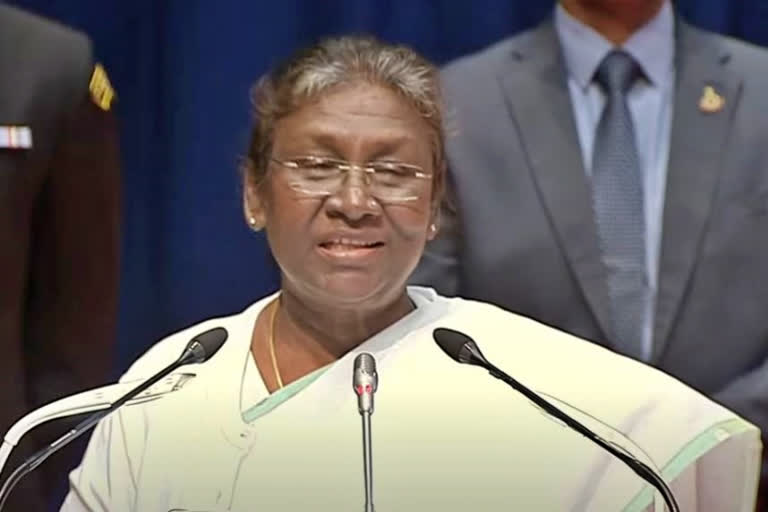New Delhi: President Droupadi Murmu Saturday highlighted the plight of prisoners who have spent years in jail because they have limited resources and can't afford to get released.
President Murmu was speaking on the occasion of Constitution Day celebrated in the Supreme Court in presence of the Chief Justice of India the union law minister and Supreme Court judges.
President Murmu said that when she was an MLA she was made the chairperson of the Home Standing Committee and travelled across the state to see the prisoners' condition. She said she visited prisons and conducted meetings to improve the situation and though things improved, she could not get everything she wanted.
"Think of the people in jail. Think of those who have been imprisoned for years. They don't know the Preamble of the Constitution, or their fundamental rights or fundamental duties. No one is thinking about them. Their family members do not have the courage to rescue them, because in fighting the case, even the utensils of their house are sold.
Also read: Let's make judiciary diverse, accessible: CJI Chandrachud on Constitution Day
Those who end the lives of others roam outside but the common man remains in jail for years for minor crimes," the President said adding "they are also scared about society looking down upon them."
"I come from a small village, we villagers consider only three people as God- Guru, Doctor and Lawyer. Guru is in the role of God by giving knowledge, doctor by giving life and lawyer by giving justice," she said.
President Murmu also highlighted women's role and urged the judiciary to enhance the participation of women. Talking about her journey, the President recalled that she was born in a village where doctors, teachers, and lawyers were considered God.
In the same event, Law Minister Kiren Rijju said the pendency of cases was going to cross a whopping five crore and something had to be done to contain the rise. He said that cases regarding women, children, and other sensitive matters should be dealt with through fast-track courts and though some states have worked towards it, some states still have to take initiatives.
"Ease of justice should be an indicator to ease of living," the minister said.



